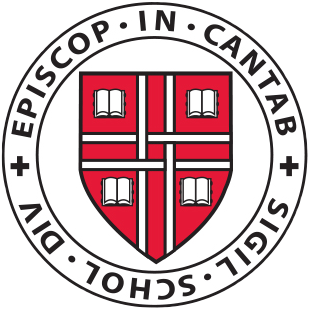UPDATE: Letter from Alumni/ae Executive Council responding to action here
News from Episcopal Divinity School:
UPDATE: The trustees have adopted the resolution to terminate degree granting in June 2017 on an 11-4 vote. The interim dean has offered his resignation as of November 19th because he disagrees with the decision.
New information from the Board of Trustees
Cambridge, MA, July 21—Episcopal Divinity School will cease to grant degrees at the end of the upcoming academic year, the seminary’s board of trustees decided today on a 11-4 vote. During the next year, the board will explore options for EDS’s future, some of which were suggested by a specially convened Futures Task Force to make plans for EDS’s future.
“A school that has taken on racism, sexism, heterosexism, and multiple interlocking oppressions is now called to rethink its delivery of theological education in a new and changing world,” said the Very Rev. Gary Hall ’76, chairman of the board, in introducing the resolution. “Ending unsustainable spending is a matter of social justice.”…
No faculty or staff members will be laid off during the upcoming academic year, and all students, including EDS’s final incoming class, which arrives on campus next month, will be “taught out,” Hall said. “This means that we will contract with another seminary or seminaries to accept our students at full credit and we will make sure that students do not bear the expense of this transition.”
Bonnie Anderson, vice chair of the board and former president of the House of Deputies, characterized the vote as “a sad but hopeful moment.”
“We understand that people will grieve this decision,” said Anderson who received an honorary doctorate from EDS in 2006. “It is the end of a significant phase in the life of a significant institution that has made incredible contributions to the life of our church. But by choosing this course now, we are in a much stronger position to ensure EDS’s legacy.”
Read it all here.
From the News at EDS:
In February 2016, the board set out four criteria for scenarios that it will consider for the school’s future. Those criteria, as summarized by Hall are “1. No small-to-small institutional mergers. 2. No business as usual. 3. The proposal must carry forth the historic mission of EDS. 4. The proposal must be financially sustainable.”
“The task force approached its work with a willingness to explore new ideas and develop a creative synthesis, but with a firm grasp on the financial realities the seminary faces,” said the Very Rev. Francis Fornaro, EDS’s interim president and dean, who is a member of the task force. “As the task force wrote in its report to the board of trustees, we and the EDS community are eager to work together to realize the kind of adaptive, transformational change that we were charged with envisioning.”
The current planning process began in early 2015 when trustees retained AGB Institutional Strategies, a consulting arm of the Association of Governing Boards of Universities and Colleges, to study options for its future, and when the EDS administration retained Concord, Massachusetts-based Maguire Associates, to assess its enrollment situation.
While both studies noted that most mainline seminaries are faced with questions about how to remain sustainable, and that EDS is faced with particular challenges resulting from public perceptions stemming from recent internal conflict, the studies also suggested ways that EDS could build on its identity and its Cambridge location, and ways that the school might partner with other institutions. “All of the people at EDS will have to align themselves in a conscious way and head in one direction for the common good of this special institution,” concluded the Maguire report. “Without this alignment, EDS will have a very difficult time navigating the challenging waters it faces.”

